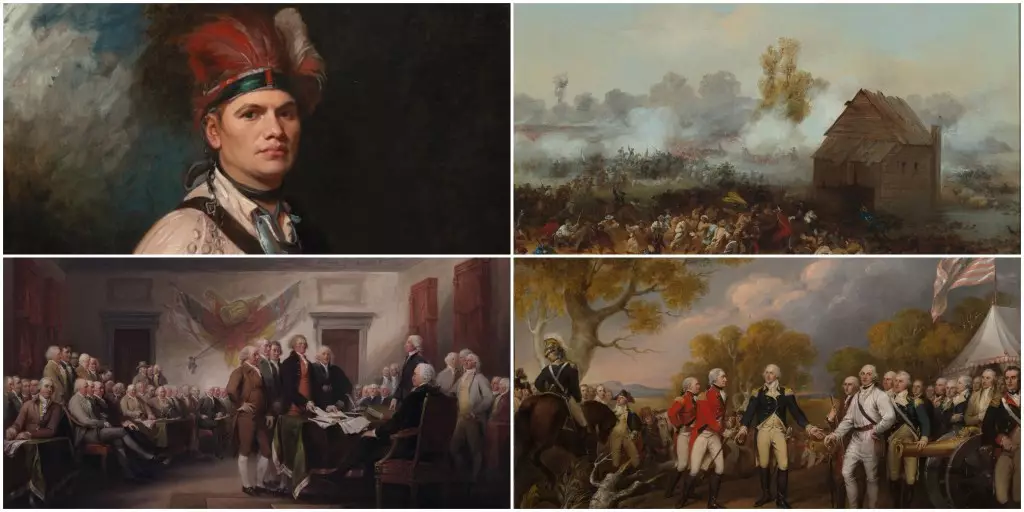Veteran documentarian Ken Burns has once again ventured into the annals of American history, this time focusing his lens on a narrative rich with complexity: The American Revolution. In collaboration with producers Sarah Botstein and David Schmidt, and writer Geoffrey C. Ward, Burns aims to deconstruct the myths surrounding this war, illustrating how it led to the birth of a nation and influenced global democratic movements. The upcoming series, set to be showcased at the London TV Screenings by PBS Distribution, is a testament to Burns’ enduring relationship with historical storytelling, which has previously resulted in iconic series such as The Civil War and The Vietnam War.
This new project arrives at a time when the interpretation of history is rapidly evolving, reflecting a broader understanding that goes beyond traditional narratives. The series is promising not just to recount events, but to dissect the virtues and contradictions present during the formation of the United States. As it delves into the multifaceted perspectives involved, viewers can expect a wealth of characters—from soldiers to political leaders—each contributing to a comprehensive discourse on the implications of the revolution.
One of the most intriguing aspects of Burns’ approach is the commitment to inclusivity in the storytelling. The series doesn’t just spotlight the familiar figures of the American Revolution; it seeks to amplify the voices of those often left in the shadows of history. By highlighting the experiences of African Americans, Native nations, Loyalists, and foreign allies, the project promises to reflect a society at war with itself, addressing the internal conflicts and social upheavals that shaped the young nation.
Burns reminds audiences that the American Revolution was as much a civil war as it was a fight for independence. The dichotomies of loyalty and rebellion within families and communities will be explored, revealing a landscape marred by violence and discord, yet simultaneously energized by ideals of liberty and democracy. This dual nature of the revolution, seen through a critical lens, will enrich the viewer’s understanding of its historical significance.
Another distinguishing feature of The American Revolution is its narrative style and production quality. Narrated by Peter Coyote and enhanced by a constellation of esteemed actors—such as Meryl Streep and Samuel L. Jackson—who lend their voices to nearly 200 historical figures, the series promises to deliver an engaging and immersive viewing experience. This method of using well-known personalities to embody historical characters adds a layer of accessibility, potentially capturing the interest of a wider audience.
Moreover, the film incorporates newly commissioned maps and archival materials that provide viewers with a visual context to the tumultuous events it recounts. This commitment to high production values indicates Burns’ understanding of how contemporary audiences consume media; by blending thorough research with innovative storytelling techniques, the series seeks to educate and entertain simultaneously.
The series will not just recount historical events but will challenge viewers to reflect on the legacy of the American Revolution in today’s context. As producers have noted, the post-war United States was a nation that few could envision before the war began, one that paradoxically emerged from a struggle for freedom while grappling with the moral implications of slavery and displacement.
In the age of discussions surrounding social justice, systemic inequality, and democracy’s fragility, reflecting on the contradictions of the nation’s founding becomes ever more pertinent. Burns’ exploration of these themes through The American Revolution serves as both a historical analysis and a contemporary commentary, inviting viewers to reconsider what it means to be American today.
The American Revolution, with its layered complexities and diverse voices, constitutes more than a historical milestone; it is a critical part of the ongoing dialogue about freedom, rights, and the very foundation of democracy globally. As Ken Burns prepares to unveil this series, the invitation to rethink the past for a clearer vision of the future is one that cannot be ignored. By presenting history as a living narrative, The American Revolution not only educates but also inspires a new generation to engage thoughtfully with the lessons it imparts.
